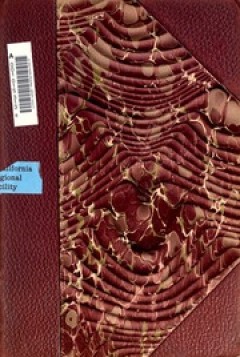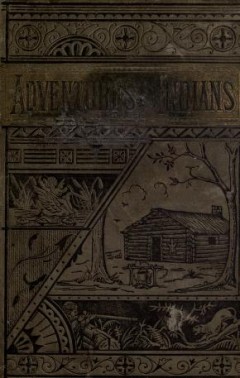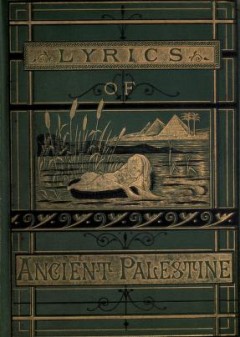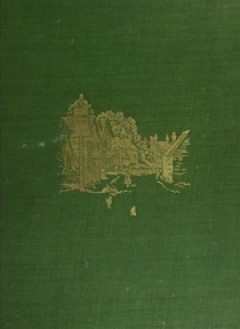Filter by

Fate and Freedom in Korean Historical Films
This open access book examines the depiction of Korean history in recent South Korean historical films. Released over the Hallyu (“Korean Wave”) period starting in the mid-1990s, these films have reflected, shaped, and extended the thriving public discourse over national history. In these works, the balance between fate and freedom—the negotiation between societal constraints and individu…
- Edition
- -
- ISBN/ISSN
- 978-3-031-27267-7
- Collation
- XIX, 255
- Series Title
- -
- Call Number
- -

Memoirs of Duke de Richelieu volume 1
- Edition
- 1
- ISBN/ISSN
- 623553744
- Collation
- cdl; americana
- Series Title
- -
- Call Number
- 920 RIC m
- Edition
- 1
- ISBN/ISSN
- 623553744
- Collation
- cdl; americana
- Series Title
- -
- Call Number
- 920 RIC m

Thrilling adventures among the Indians : comprising the most remarkable perso…
- Edition
- -
- ISBN/ISSN
- -
- Collation
- 550 p. incl. illus., plates ; 20 cm,Published in 1864 by Bradley, Philadelphia. This edition updated
- Series Title
- -
- Call Number
- 900 FRO t
- Edition
- -
- ISBN/ISSN
- -
- Collation
- 550 p. incl. illus., plates ; 20 cm,Published in 1864 by Bradley, Philadelphia. This edition updated
- Series Title
- -
- Call Number
- 900 FRO t

Lyrics of ancient Palestine, poetical and pictorial illustrations of Old Test…
- Edition
- -
- ISBN/ISSN
- -
- Collation
- x, 208 p. :
- Series Title
- -
- Call Number
- 900 REL l
- Edition
- -
- ISBN/ISSN
- -
- Collation
- x, 208 p. :
- Series Title
- -
- Call Number
- 900 REL l

East Coast (N.Z.) historical records
- Edition
- -
- ISBN/ISSN
- -
- Collation
- 92 p. 25 cm,
- Series Title
- -
- Call Number
- -
- Edition
- -
- ISBN/ISSN
- -
- Collation
- 92 p. 25 cm,
- Series Title
- -
- Call Number
- -

A royal craft; being notes on the history & progress of printing
Abbyy GZ,Animated GIF,Archive BitTorrent,Cloth Cover Detection Log,DjVu,DjVuTXT,Djvu XML,Dublin Core,Grayscale PDF,Item Tile,MARC,MARC Binary,MARC Source,Metadata,OCR Page Index,OCR Search Text,Page Numbers JSON,Scan Factors,Scribe Scandata ZIP,Single Page Processed JP2 ZIP,Single Page Raw JP2 ZIP,Text PDF,chOCR,hOCR
- Edition
- -
- ISBN/ISSN
- -
- Collation
- 105 p
- Series Title
- -
- Call Number
- -

The Rollright Stones : history & legends in prose & poetry
FOR several miles the counties of Oxford and Warwick, are bounded by a narrow straight roadway. From the "Cross Hands" to the Edge Hills, this road follows the northern boundary of the Cotswold country. To the north west lie the fertile valleys and plains of the Warwickshire Feldon country, whilst eastwards the ground gently slopes to the valley of the Cherwell. The ridge thus divides the water…
- Edition
- -
- ISBN/ISSN
- 86180473
- Collation
- cdl; americana
- Series Title
- -
- Call Number
- srlf:LAGE-2822281

A theory of the genetic basis of appeal in literature
Possibly the most clearly distinguishing feature of the psychology of our time as compared with that of a generation ago is the relative by greater importance accorded the subject of psychic growth. The older psychology for the most part contented itself with defining a variety of terms which popular speech had already devised to name such different aspects of psychic life as the general consci…
- Edition
- -
- ISBN/ISSN
- 235687374
- Collation
- cdl; americana
- Series Title
- -
- Call Number
- nrlf_ucb:GLAD-307238

The natural history and antiquities of Selborne, in the county of Southampton
Tue Author of the following Letters, takes the liberty, with all proper deference, of laying before the public his idea of parochial history, which, he thinks, ought to consist of natural productions and occurrences as well as antiquities. He is also of opinion that if stationary men would pay some attention to the districts on which they reside, and would publish their thoughts respecting the …
- Edition
- -
- ISBN/ISSN
- 606851229
- Collation
- cornell; biodiversity; americana
- Series Title
- -
- Call Number
- -

The makers of Venice
Venice has long borne in the imagination of the world a distinctive position, something of the character of a great enchantress, a magician of the seas. Her growth between the water and the sky; her great palaces, solid and splendid, built, so to speak, on nothing; the wonderful glory of light and reflection about her; the glimmer of incessant brightness and movement; the absence of all those h…
- Edition
- -
- ISBN/ISSN
- 470477562
- Collation
- cdl; americana
- Series Title
- -
- Call Number
- SRLF_UCLA:LAGE-2554896
 Computer Science, Information & General Works
Computer Science, Information & General Works  Philosophy & Psychology
Philosophy & Psychology  Religion
Religion  Social Sciences
Social Sciences  Language
Language  Pure Science
Pure Science  Applied Sciences
Applied Sciences  Art & Recreation
Art & Recreation  Literature
Literature  History & Geography
History & Geography